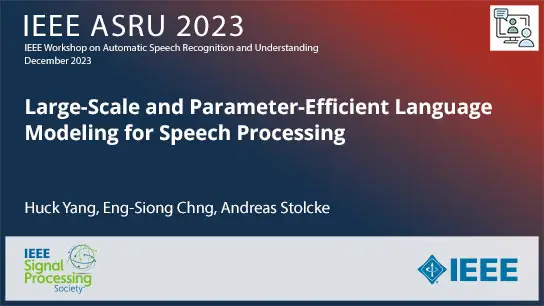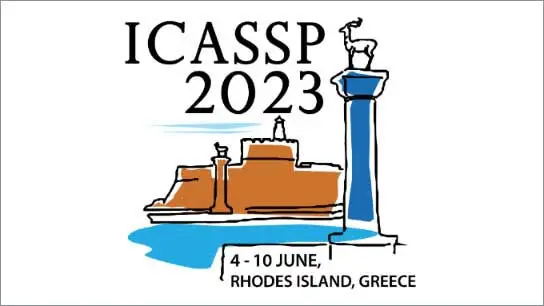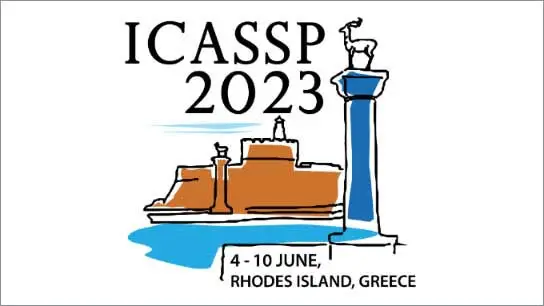Massively Multilingual Shallow Fusion with Large Language Models
Ke Hu (Google); Tara Sainath (Google); Bo Li (Google); Nan Du (Google Brain); Yanping Huang (Google Brain); Andrew M Dai (Google Brain); Yu Zhang (Google); Rodrigo Cabrera (Google); Zhifeng Chen (Google); Trevor Strohman (Google)
-
Members: FreeSPS
IEEE Members: $11.00
Non-members: $15.00
07 Jun 2023
While large language models (LLM) have made impressive progress in natural language processing, it remains unclear how to utilize them in improving automatic speech recognition (ASR). In this work, we propose to train a single multilingual language model (LM) for shallow fusion in multiple languages. We push the limits of the multilingual LM to cover up to 84 languages by scaling up using a mixture-of-experts LLM, i.e., generalist language model (GLaM). When the number of experts increases, GLaM dynamically selects only two at each decoding step to keep the inference computation roughly constant. We then apply GLaM to a multilingual shallow fusion task based on a state-of-the-art end-to-end model. Compared to a dense LM of similar computation during inference, GLaM reduces the WER of an English long-tail test set by 4.4% relative. In a multilingual shallow fusion task, GLaM improves 41 out of 50 languages with an average relative WER reduction of 3.85%, and a maximum reduction of 10%. Compared to the baseline model, GLaM achieves an average WER reduction of 5.53% over 43 languages.



